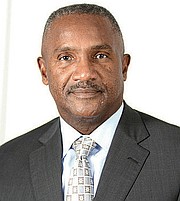By NEIL HARTNELL
Tribune Business Editor
nhartnell@tribunemedia.net
The Bahamas “cannot lose sight of the fact” that G-7 members and other high-tax European states want “to wipe out” international financial centres (IFC) such as this nation, a prominent accountant warned yesterday.
Craig A “Tony” Gomez, the Baker Tilly Gomez managing partner, told Tribune Business that The Bahamas needed to keep that objective in mind when determining how it will respond to the Group of Seven (G-7) finance ministers’ agreement on a minimum 15 percent global corporate tax rate.
He added that the weekend announcement was likely to impact rival IFCs such as Bermuda, the Cayman Islands and British Virgin Islands (BVI) more as they have gone after precisely the type of multinational revenue/profit offshoring that is the G-7’s prime target.
The Bahamas, by contrast, has largely focused on private wealth management via structures that typically use corporate vehicles as passive investment entities, leaving it less vulnerable to the 15 percent minimum global corporate tax proposal.
However, Mr Gomez suggested the main impact might be to choke off any future business or investment flows that The Bahamas might seek to attract from multinational entities and corporate players. He indicated that the G-7 proposal, if it is adopted as a global standard, could mean there is little advantage to using this nation’s present ‘no tax’ platform if revenues/profits are still ultimately subjected to a 15 percent levy.
“You’re going after international jurisdictions that house multinational corporate entities. I don’t know if The Bahamas has a significant amount of that business,” Mr Gomez explained. “But when multinationals in one jurisdiction start to restructure, it impacts their thinking on every country that operates in that orbit.
“While The Bahamas may not be well known or popular for multinational companies, once these types of companies start to strategise or rethink it’s going to impact any business The Bahamas could have got from a multinational entity.”
Urging The Bahamas not to ignore the bigger picture goals that many G-7 nations have harboured for two decades, Mr Gomez added: “We cannot lose sight of the fact the stated intent remains the same among G-7, G-20 countries. It remains to wipe out so-called tax havens.
“Countries and domiciles regarded as tax havens, that remains the same strategy there. But our primary business is private wealth management, and The Bahamas is not a primary centre for multinationals. It’s the institutions which The Bahamas has not really attracted over the years.”
Mr Gomez also questioned how the G-7 proposal will impact the likes of Barbados, with its network of double tax treaties. These ensure that Barbados-domiciled companies are taxed at the island’s lower rate rather than at higher home country rates when profits and revenues are repatriated, which is why so many Canadian companies have based their Caribbean headquarters there, but the 15 percent minimum rate would seem to trample all over these agreements.
Much work remains to be done to bring the G-7’s 15 percent minimum global corporate tax into effect. Few details on how it will work in practice have yet to be released, and there were multiple signs yesterday that global unity is already fraying and will be difficult to achieve.
Republican congressmen and Senators in the US have branded the proposal as “crazy” and threatened to block its passage through the legislature. Pat Toomey, a Republican senator from Pennsylvania, was reported by the UK’s Guardian newspaper as saying: “Certainly the whole fact that they had to try to persuade all these other countries to make sure they raise their taxes is a confession of the damage we’re doing to our own country.”
And Republican senator John Barrasso, of Wyoming, called the plan “anti-competitive, anti-US, and harmful for us as we try to continue to grow the economy at a time when we’re coming out of a pandemic”.
The Bahamian government, in its response to the G-7 move, pledged it will not be bullied by the 15 percent minimum global corporate tax deal. The Ministry of Finance, in a statement, said it was assessing whether there are any consequences for The Bahamas’ domestic tax system and international financial services industry.
It added that this country “reasserts its sovereign right to determine the tax structure best suited for the ongoing development of the country” in response to the pronouncement by the world’s most powerful economies that they have reached agreement on how to combat tax avoidance by major multinationals - especially those in the so-called “digital” economy.
“The Ministry of Finance is conducting an assessment of the impact of these proposals and what implications they may have for the domestic tax regime of The Bahamas,” it said in response to the G-7 announcement. “The Bahamas reasserts its sovereign right to determine the tax structure best suited for the ongoing development of the country.
“Nonetheless, the ongoing multilateral discussions are timely given the recent announcement by the Prime Minister in the Budget speech regarding the Ministry’s imminent comprehensive tax study. The output of this in-depth, empirical assessment will inform ongoing tax reform efforts in pursuit of greater fairness and equity within the country’s tax regime.”





Comments
TalRussell 4 years, 8 months ago
Curious if Comrade "Tony," might care share as what be's the number of locals are directly employed by Foreign Companies, and what is the number being supported who are directly and indirectly in the country on Work Permits, yes?
tribanon 4 years, 8 months ago
LMAO
Sign in to comment
OpenID